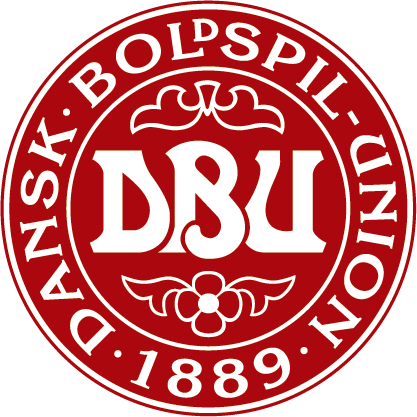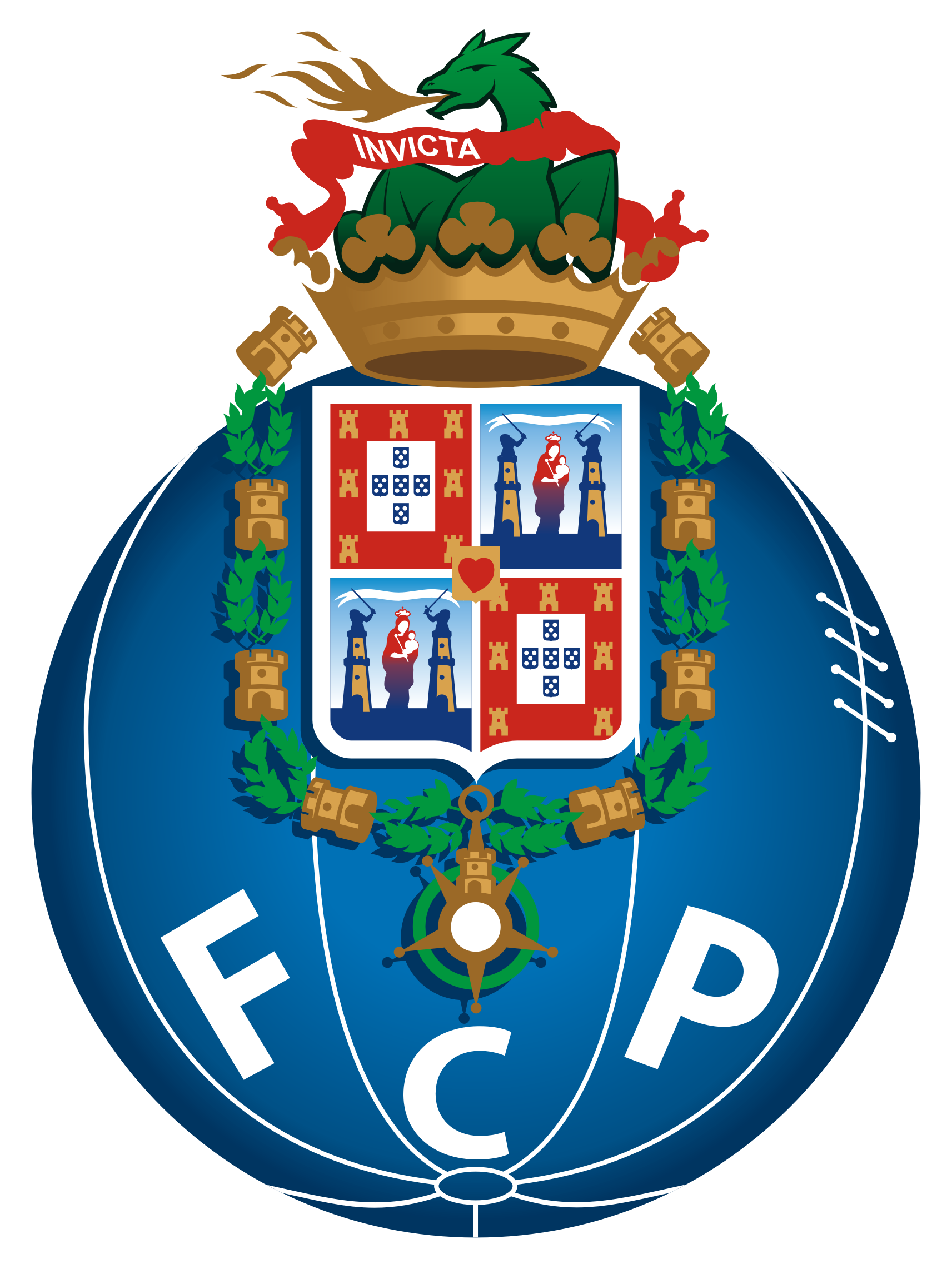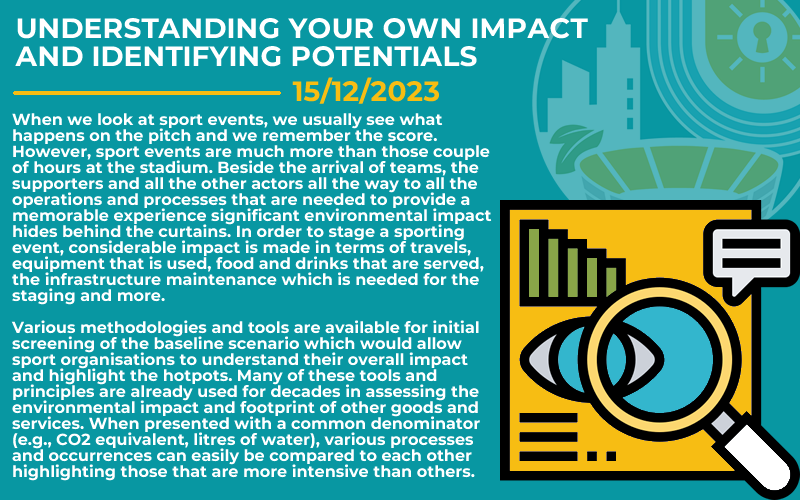The ACCESS webinar series continues with the second one on environmental assessment
After the successful first episode of the webinar series, which took place on 15 November, the next one, looking at qualitative and quantitative assessment of sport organisations’ environmental footprint is taking place on 15 December.
After having covered communications and reporting of the environmental performances in sports, as well as community engagement during the first webinar, it’s time to announce the next one which will take place on 15 December, titled “Understanding your own impact and identifying potentials”.
You can still register for this episode, as well as the entire series here.
When we look at sport events, we usually see what happens on the pitch and we remember the score. However, sport events are much more than those couple of hours at a stadium. Beside the arrival of teams, the supporters and all the other actors all the way to all the operations and processes that are needed to provide a memorable experience, significant environmental impact hides behind the curtains. In order to stage a sporting event, considerable impact is made in terms of travels, equipment that is used, food and drinks that are served, the infrastructure maintenance which is needed for the staging and more.
Various methodologies and tools are available for initial screening of the baseline scenario which would allow sport organisations to understand their overall impact and highlight the hotpots. Many of these tools and principles are already used for decades in assessing the environmental impact and footprint of other goods and services. When presented with a common denominator (e.g., CO2 equivalent, litres of water), various processes and occurrences can easily be compared to each other highlighting those that are more intensive than others.
The speakers will come from practitioners and academics who have been developing relevant tools for measuring qualitative and quantitative environmental impact, through scenarios, carbon equivalents and similar indicators. Lucie Segalas of the Surfrider Foundation Europe will present a recently developed tool for qualitative assessments and its advantages before Federico Merlo of Ergo srl and Matteo Donelli of the Sant’Anna School of Advanced studies present more quantitative approaches – namely, carbon footprint and Life Cycle Analysis. Alessio Novi of the same school, will present a recent case study on the World Mountain and Trail Running Championship.
The discussion after the presentations will allow the participants to discuss the differences between qualitative and quantitative assessments and the advantages and disadvantages of each approach.
11.00 – 11.10: Welcome and introduction to the webinar series by the host, Ernest Kovacs, ACR+
11.10 – 11.25: Qualitative impact assessment with the Green Sports Hub Self-Assessment Tool; Lucie Segalas, Surfrider Foundation Europe
11.30 – 11.45: TBC
11.45 – 12.00: Carbon footprint, a way to measure the impact of the football world; Federico Merlo, Ergo srl
12.05 – 12.20: GAMES ERASMUS+ project: the environmental footprint of the World Mountain and Trail Running Championships (WMTRC) 2023; Alessio Novi, Sant’Anna School of Advanced Studies
12.30 – 12.45: Life Cycle Assessment, what Is the environmental impact of a football match?; Matteo Donelli, Sant’Anna School of Advanced Studies
12.50 – 13.00: Discussion














